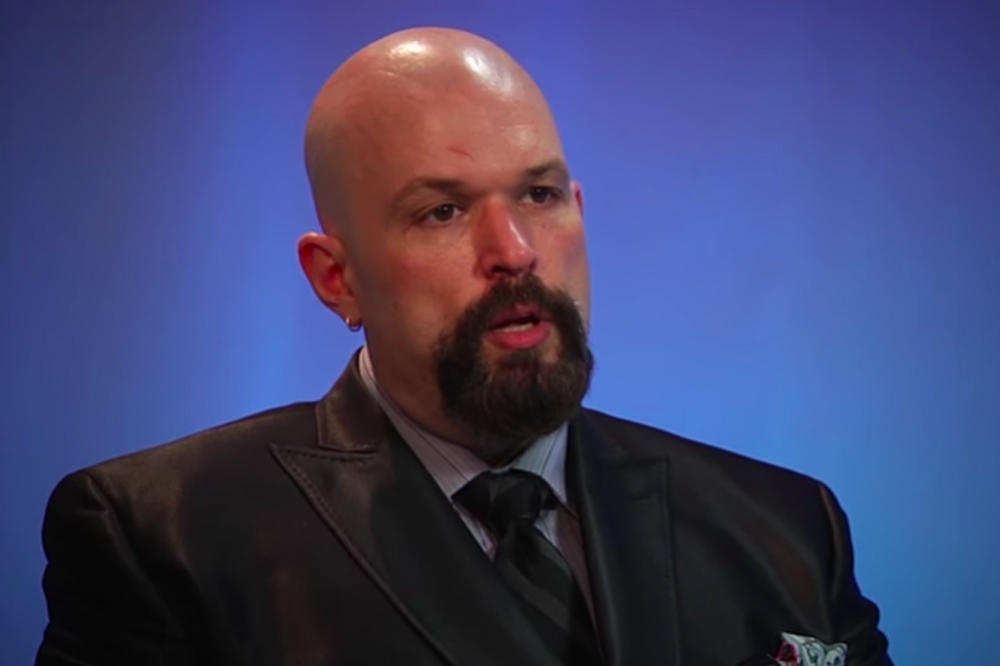‘Democracy,’ wrote H.L. Mencken, ‘is the art and science of running the circus from the monkey cage.’ Kevin D. Williamson is a man cut very much from Mencken’s cloth. He has the same caustic humor. He has the same contempt for the mob. He has the same respect for the transcendent individual. In his new book The Smallest Minority, Williamson is at his most Menckenesque.
This is not to say that Williamson is a mere imitator of the sage of Baltimore. For one thing, it is hard to imagine Mencken opening a book by advising the reader that ‘you can’t fuck with a monkey in Delhi.’ Sound advice. Williamson is not just offering a tip to tourists, though, but comparing India’s shit-flinging monkeys to the denizens of social media.
This is a funny thing about Williamson’s book: he spends pages talking about the importance of culture and the lamentable philistinism of the masses but trades heavily in swear words and toilet humor. The book opens with a quote by Leo Strauss, who said:
‘The Greeks had a beautiful word for “vulgarity”; they called it apeirokalia, lack of experience in things beautiful.’
The following pages contain jokes and arguments revolving around animal masturbation, animal defecation, human masturbation, vomit, sex toys, testicles and Caravaggio’s ‘bony cannelloni’. I have no wish to sound prim and proper here. I’m not going to say ‘goodness’, ‘blast’ or ‘bother’ if I stub my toe. But reading the book sometimes feels like being lectured to about the life of an auteur by the Farrelly brothers.
It does not help that Williamson’s insults are so often lazy. Ex-CNN commentator Marc Lamont Hill is described as a ‘mush-brained half-literate assclown’, a ‘cretin’ and an ‘asshole’, which are the kind of devastating witticisms that your alcoholic uncle might come up with to describe his ex-wife’s new husband. Jeffrey Goldberg, who fired Williamson from the Atlantic, will, if he opens this book, find references to ‘his balls’ (and their absence), ‘his testicles shriveling up like a couple of unharvested Bordeaux grapes’ and ‘his delusions of testicular adequacy.’ I doubt that Goldberg, his wife and his personal physician have spent as much time collectively thinking about the Atlantic editor’s gonads as Williamson has alone.
The strange thing is that I have heard a lot of people claim that even if you do not like Williamson’s opinions you have to respect his prose. There are nice flourishes here and there. None of them, however, could make up for his use of the phrase ‘dumbasstical shitweasels‘, which appeared in a paragraph like a dead cockroach in an otherwise passable slice of cake. Bizarrely, Williamson adds a footnote clarifying that by ‘dumbasstical shitweasel’ he means an ‘ordinary constituent of the demos.’ If you are going to deride the intelligence of the average man, which can often be justifiably done, do not use a phrase so artless and childish.
What about the arguments of the book? Williamson spends much of his time dissecting political and cultural attempts to stifle free thought. Some of this is rather good. When he scales down the rhetorical bombast he can make some solid arguments against activistic and bureaucratic attempts to stifle people’s speech. First, on a small but important point, I was glad that in his chapter on his brief and controversial time at the Atlantic he emphasized that he was fortunate as a famous columnist who could find work elsewhere once he was fired, and that the average person who is sacked for saying something transgressive might not land on their feet. This takes more self-awareness than some columnists are blessed with.
Williamson writes well about the escalating outrage of online tendencies. ‘Outrage is intoxicating,’ he writes:
.’..and like other intoxicants, it makes people stupid: But there is a reason why the term “social drinker” exists — becoming intoxicated as a group is an almost universal human social-bonding experience. To whip on the metaphor just a little bit, these are people who start the night with a beer or two and then start taking tequila shots, not people sipping a 1982 Latour; they aren’t here for the mineral notes of the Bordeaux — they are here to get falling-down drunk on venom as a way of attempting to deepen their connections to their friends, real and mediated.’
All I would add is that while being ‘mad online’ can be serious and stupid, it can be also be performative and calculating. I’m sure Williamson knows that but it deserves emphasis.
Williamson is not monomaniacal enough a libertarian to reduce the threat to speech and inquiry to state coercion, or clichéd enough a right-winger to reduce it to student leftists, and is good on the subject of corporate suppression. ‘The corporation is a source of identity and social position,’ Williamson writes:
‘…and it is inevitable that interest groups seeking to elevate or reinforce their own socio-economic positions — including positions of relative privilege such as those occupied by college-educated white women, Caitlyn Inc. — will attempt to recruit the corporation and hijack its resources for that purpose.’
‘The politicization of corporate life,’ Williamson writes:
‘…is in part a protection racket for practitioners of corporate politics, otherwise unskilled people whose talents in life are ingratiation, wheedling, and middle-school Mean Girls-style social maneuvering.’
This is true, and well-put. It is a mistake to think that when businesses fire people they are just protecting the bottom line. As Williamson says, outraged Twitter trolls tend not to have that much influence on the market.
The ‘yes, but…’ that occurred to me is that corporations will always be ideological, to a greater or lesser extent, reflecting the individual and class interests and prejudices of their owners, shareholders and higher-ups. Protecting the individuality of their employees depends on the existence of some kind of societal safety net. But that is a conversation for another day.
Williamson appears to be quite the fundamentalist on the subject of free speech. I say ‘appears to be’ because while he discusses controversies surrounding commentators like himself, Sarah Jeong, Quinn Norton and Marc Lamont Hill, I found no reference to John Derbyshire, who was fired from Williamson’s employer National Review for disparaging African Americans. That would have been an interesting case to discuss.
My two overarching problems with Williamson’s book are problems that I also have with Mencken. People who disagree with him, he seems to think, are just dumb (or at least rendering themselves dumb for the sake of something else). Antifa and the alt-right, for example, do not have different moral visions that inform different radical goals but are just ‘bone-deep stupid’, vaguely in hoc to a ‘German philosophical tradition’ that despite somehow producing people who support open borders, gender abolition and ‘Drag Queen Story Hour’ and people who support white nationalism, the patriarchy and criminalizing homosexual relations is somehow just a blob of continental foolishness.
The other structural problem is that for all Williamson thinks the individual, that ‘smallest minority’, should have supreme status, you emerge with little sense of what an individualist society would look like and why it would be so productive and sophisticated. Say what you like about ‘neoreactionary’ thinker Mencius Moldbug, but when he took his stand against democracy he came with his own powerful if eccentric alternative. Williamson just grouses about the demos. We can agree, of course, that you should not idealize ‘the people’ when it contains so many embittered iconoclasts, paranoid pattern-seekers and tedious midwits. But we also have to accept that it was not the masses who came up with harebrained schemes like the Iraq war. It is not the masses who got rich off other people’s crippling opioid addictions. It is not the masses who enabled Jeffrey Epstein. Mocking the hoi polloi has its charms, but if you are going to be an elitist then a far more difficult endeavor would be making a case for a better elite.


















